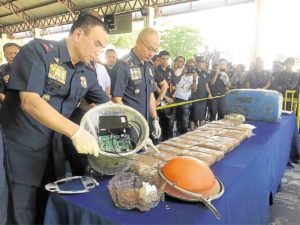BORACAY ISLAND, Akaln — The provincial government of Aklan is planning to place the entire province under a state of calamity once Boracay Island is closed on April 26 to pave the way for its six-month rehabilitation.
Aklan Gov. Florencio Miraflores said the province-wide state of calamity would stem from the impact of the closure on Malay town, where Boracay belongs, and 16 other towns, whose income largely depended on tourism money.
Miraflores said the province had been feeling the brunt of the imminent closure of the island. “Workers of Boracay come from the whole province and (many) businesses in Aklan are linked to (Boracay’s) tourism industry,” he said.
Drop
Only days before the closure of the island to tourists, suppliers of meat, vegetables and fruits have already reported a 50-percent drop on orders because big hotels and restaurants in Boracay were not replenishing their food stocks in anticipation of the closure.
Government hospitals in the province were also expected to incur a deficit of P240 million in six months as the bulk of its operational funds came from terminal fees paid by tourists at the Caticlan port on the mainland of Malay and the Cagban port in Boracay.
Calamity funds
In Manila, presidential spokesperson Harry Roque assured that funds to help displaced workers in Boracay are ready and available once President Duterte signs the order putting the island under a state of calamity.
Roque downplayed the fact that Mr. Duterte had yet to sign the order on Tuesday.
“The people have been told, they know that there will be a closure; there will be a declaration of a state of natural calamity. It’s just a matter of the President signing the documents, and it can be signed any time now,” he said in a press briefing on Tuesday.
The President, Roque said, made sure that funds to help Boracay were in place before the island shuts down to tourists. The declaration would allow the government to tap P2 billion in calamity funds to help displaced workers. —Nestor P. Burgos Jr. and Leila B. Salaverria


